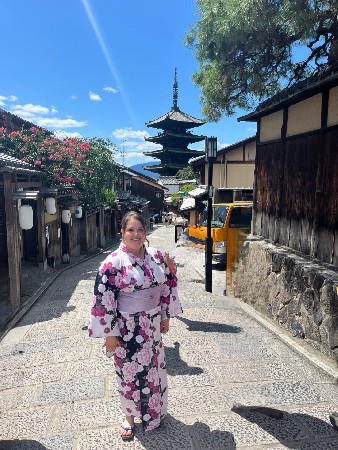How to Be a Great Travel Companion for Someone with Anxiety or Physical Limitations

Traveling with someone who has anxiety or physical challenges requires a bit of extra planning and understanding, but the result can be unforgettable experiences for both of you. I know firsthand how much support, or the lack of it, can mean. I've lived with anxiety my whole life, seen therapists, and attended group sessions. What has helped me most? Exposing myself to the things I feared, including travel.
My Story: From Anxiety to Amsterdam
When I was 22–23, I had long wanted to travel alone, but I didn't dare. I had no one to go with, and my anxiety kept making me postpone it. Suddenly, I decided: I booked a flight to Amsterdam one day, a hostel the next, and left the day after—without giving myself time to back out. I had no plans, just anxiety and a desire to succeed.
"The anxiety came with me to Amsterdam, but I discovered the world felt less scary when I dared to face it alone."
I was surprised at how much easier it was to talk to people while traveling than at home. I stayed at a hostel, met people via an app, went to an amusement park with one of them, and to a museum with another. I joined a guided boat tour alone, even ate at a restaurant by myself, though I almost got served raw meat and was too shy to speak up. I got lost, had trouble with my plane ticket, but always found a solution. That trip changed me. It gave me the courage to take more solo journeys and taught me that you can handle more than you think, if you're willing to challenge yourself.
"From anxious to solo traveler: Amsterdam was the start of a life where I dared to dream big."
What I Learned, and What You Can Take With You as a Travel Companion
This experience taught me how important safety, flexibility, and understanding are. As a travel companion, you can be the support that helps a friend, partner, or parent take that step. Here are some practical tips:
1. Prepare Together
Sit down and review the itinerary, transportation, accommodations, and activities. Ask about needs, preferences, and potential challenges. Just being included in planning can reduce stress.
2. Be Open and Listen
Don't assume what the other person needs. Listen, ask questions, and respect their boundaries, even when plans have to change.
3. Keep a Realistic Pace
Don't overfill the days. Allow time for breaks, and be prepared for varying energy levels. A flexible plan creates a sense of security.
4. Have a Backup Plan
Agree in advance on what to do if things become overwhelming, maybe a code word for a pause or alternative, less demanding activities.
5. Encourage, But Don't Pressure
Small victories build confidence. Encourage trying new things, but don't pressure or guilt-trip if something feels too difficult.
6. Use Tools and Resources
Explore accessibility features in apps, transportation, and accommodations. There are also excellent online forums and travel guides tailored to different needs.
7. Remember Yourself
It's easy to forget your own needs. Take time for small breaks or activities you enjoy, it makes you a better travel partner.
Being a great travel companion isn't about removing all challenges, it's about being present and showing understanding. Sometimes, one supportive person can make all the difference, just like I had to rely on myself the first time I traveled alone. When support and trust are in place, you and your travel partner can create memories that last a lifetime.